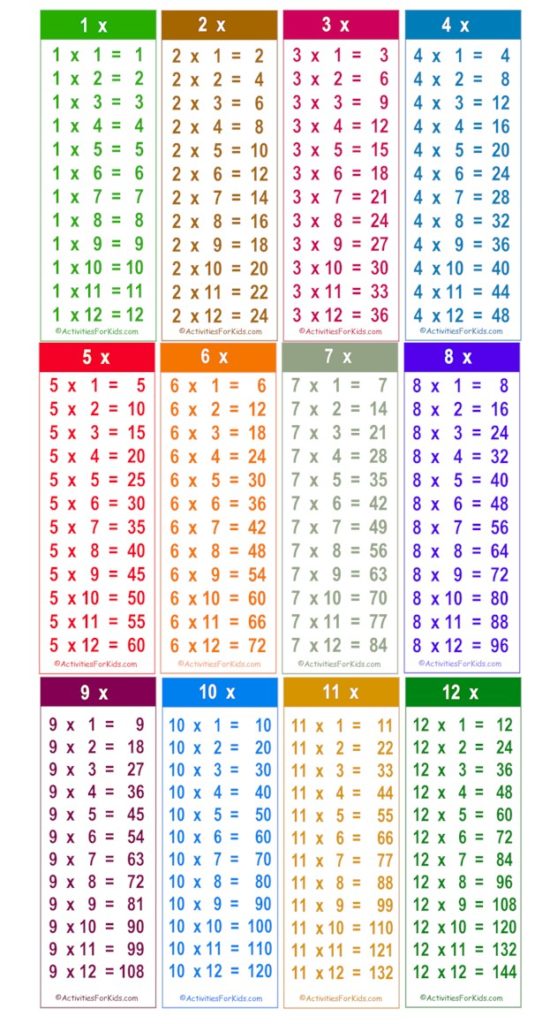A Must-Have Learning Tool
Multiplication is a fundamental math skill that builds the foundation for more advanced arithmetic, including division, fractions, and algebra. To help children master their multiplication skills, we’ve created Printable Multiplication Facts Tables for numbers 1 through 12—a simple yet effective resource for parents, teachers, and homeschoolers.

When Should Kids Start Learning Multiplication?
Every child learns at their own pace, but in most public schools, multiplication is introduced by third grade. However, before diving into multiplication tables, children should have a strong grasp of addition and subtraction. If they can comfortably add and subtract, they are ready to start learning how to multiply! When you should start teaching multiplication and division.
A great way to introduce multiplication concepts is through skip counting (for example, counting by 2’s, 5’s, and 10’s) and understanding doubling (e.g., 2 + 2 = 4, so 2 × 2 = 4). These simple techniques make learning multiplication more intuitive and less intimidating for young learners.
Free Printable Multiplication Facts Tables
We’ve designed a set of three printable pages to help kids practice their multiplication facts:
- Page 1 – Covers multiplication facts for 1 through 4
- Page 2 – Includes multiplication facts for 5 through 8
- Page 3 – Features multiplication facts for 9 through 12
These printable tables can be cut apart for individual practice or kept together in a notebook for quick reference. Having multiple copies available at a child’s desk, in their backpack, or at a Homework Station can help reinforce daily practice. For an easy reference, print out a one page Multiplication Chart for your child’s notebook.
How to Help Kids Memorize Multiplication Facts
Children can typically memorize their multiplication facts within a month by dedicating just 10 minutes a day to review. Some fun and effective strategies include:
- Flashcards – Quick and engaging way to test recall.
- Songs & Rhymes – Turn multiplication tables into catchy tunes.
- Hands-on Activities – Use objects like Legos or coins to visualize multiplication.
- Games & Apps – Interactive learning through fun digital or board games.
By incorporating these simple tools and strategies, kids can gain confidence in multiplication, making math a more enjoyable experience.
